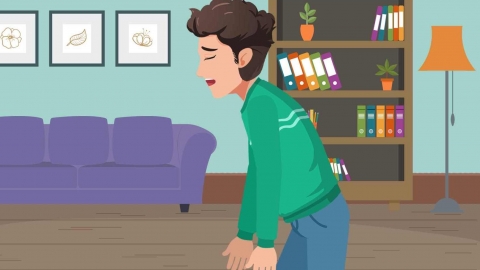Why do patients with cerebral hemorrhage feel weak all over?
General weakness in patients with cerebral hemorrhage may be caused by prolonged bed rest, insufficient nutrient intake, electrolyte disturbances, anemia, or cardiac insufficiency. Management should be based on the specific condition. It is recommended to seek medical attention at a hospital promptly and follow medical advice for treatment.

1. Prolonged bed rest: Patients often require extended bed rest after cerebral hemorrhage, which significantly reduces physical activity. Muscles are not effectively exercised, leading to gradual atrophy and weakness, causing general fatigue. Family members should assist the patient with rehabilitation training, such as regular turning and passive limb movements. As the patient's condition improves, active exercises should be gradually increased to alleviate physical fatigue.
2. Insufficient nutrient intake: The patient's appetite may be affected after illness, and the nutrients consumed may not meet the body's needs, especially proteins and vitamins, leading to physical weakness and fatigue. The diet should be adjusted to include nutritious and easily digestible foods, such as lean meat porridge, steamed eggs, and vegetable soup.
3. Electrolyte disturbances: Cerebral hemorrhage may affect the body's water and electrolyte balance, such as abnormal levels of sodium and potassium, leading to general fatigue. Symptoms may also include nausea, vomiting, and listlessness. Patients may take oral rehydration salts, sodium chloride injection, potassium chloride injection, or other medications under a doctor's guidance.
4. Anemia: Blood loss due to cerebral hemorrhage or nutritional deficiencies during treatment may cause anemia, resulting in inadequate blood and oxygen supply to organs throughout the body. Symptoms include general fatigue, pale complexion, and dizziness. It is recommended that patients take medications such as ferrous succinate tablets, vitamin B12 tablets, and folic acid tablets under medical supervision to improve anemia. Dietary recommendations include consuming iron-rich foods such as red dates and pork liver.
5. Cardiac insufficiency: Physiological stress responses and increased cardiac workload after cerebral hemorrhage may impair heart function, reducing the heart's ability to pump blood and causing poor systemic circulation, resulting in fatigue. Symptoms may also include palpitations, shortness of breath, and lower limb edema. Patients may follow medical advice to use medications such as digoxin tablets, furosemide tablets, and isosorbide mononitrate tablets to aid recovery.
During treatment, closely monitor the patient's condition changes and promptly adjust the treatment plan to enhance recovery outcomes.
References:
[1] Wang Xin-zhi, Gao Ying, Zhou Hong-xia, et al. Expert consensus on the clinical application of promoting blood circulation and removing blood stasis for treating cerebral hemorrhage [J/OL]. Chinese Archives of Traditional Chinese Medicine, 1-23 [Accessed 2025-03-14]. http://kns.cnki.net/kcms/detail/21.1546.R.20250127.1525.004.html.
[2] Ye Hong-min, Gan Xiu-ni. Research progress on cerebral hemorrhage patients complicated with venous thromboembolism [J]. West China Medical Journal, 2024, 39(12): 1958-1963.









